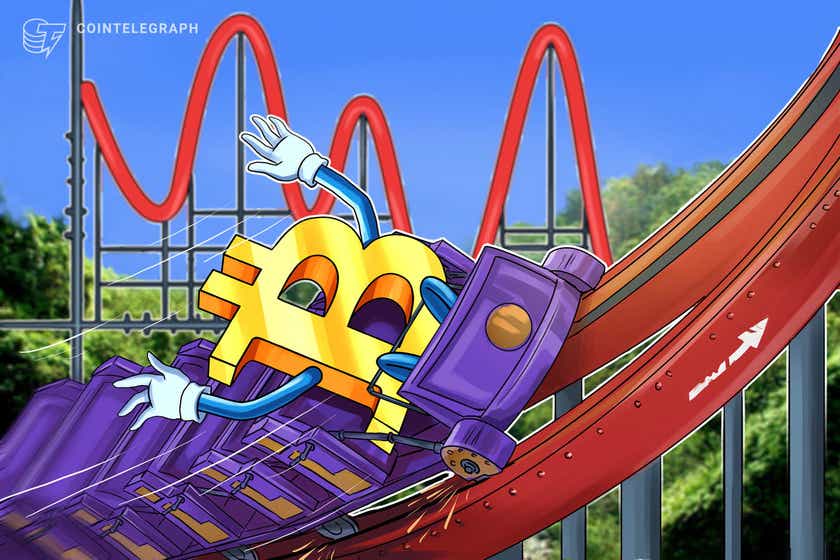Will Bitcoin hold $60K? Leverage shakeout ‘close to complete,’ data suggests

8% daily losses are painful for longs but no problem for still bullish analysts.
Bitcoin (BTC) extended its slide on Nov. 16 as BTC price action returned to test $60,000.

Bitcoin finally closes large CME gap
Data from Cointelegraph Markets Pro and TradingView showed BTC/USD coming down 8% from Monday’s local highs above $66,000.
Bouncing at $60,350 on Bitstamp, the pair nonetheless traded at its lowest since Nov. 6.
As leveraged traders felt the pain, optimism remained that the “shakeout” of positions on derivatives exchanges was nearing completion, with a resumption of upside taking over thereafter.
Leverage shakeout close to complete$BTC pic.twitter.com/rQyfaT8HUd
— Dylan LeClair (@DylanLeClair_) November 16, 2021
Bitcoin further managed to close a CME futures gap in place for over a week, a classic move that had been anticipated from the moment the gap appeared.

While previous arguments even favored a trip to $59,000, however, the chances of a drop below $60,000 remained at the time of writing.
Trader Peter Brandt, eyeing potential buying opportunities, revealed a desired entry level of closer to $50,000.
“I am interested in buying BTC around $53,000 and ETH around $4,030,” he said as part of Twitter comments.
He stressed that he was “not a bear” and did not necessarily expect Bitcoin to fall to those levels.
What’s in a month?
Others meanwhile zoomed out on BTC, in a month which has been defined by all-time highs and the associated volatility.
Related: Bitcoin has stalled, but here’s why pro traders still expect $80K by January
A return to monthly support, for example, would still place Bitcoin at $58,000.
“If BTC is to go for a retest attempt of the Monthly level (green)… It would need to break down from this black uptrend line,” fellow trader and analyst Rekt Capital commented on an explanatory chart showing the levels on Monday.
“Losing this trendline would probably confirm that this Monthly retest will happen. Until then, just consolidation volatility.”




